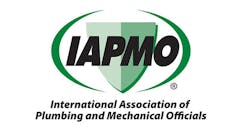Latest from Codes
IAPMO Seeks Technical Correlating Committee Members
Sponsored
ONTARIO, CA — IAPMO® has published a new white paper titled Adaptive Reuse: Converting Offices to Multi-Residential Family, a comprehensive analysis of the transformative approach to addressing housing shortages through the conversion of office spaces into residential units.
Authored by Christoph Lohr, P.E., CPD, LEED AP BD+C, ASSE 12080, vice president of IAPMO Technical Services and Research, the white paper delves into the challenges and opportunities presented by adaptive reuse projects. It emphasizes the importance of flexible building codes, like the Uniform Plumbing Code (UPC®) and Uniform Mechanical Code (UMC®), in promoting construction affordability and sustainability.
From policy considerations to financing, the white paper covers all aspects of adaptive reuse projects. It discusses the complexities of zoning changes, the potential for mixed-use buildings to create more affordable housing, and the financial incentives that can make these projects more attractive to developers.
The publication comes at a critical time when the United States faces a significant housing shortage, with an estimated deficit of 3.8 million homes. Adaptive reuse offers a viable solution to this crisis by revitalizing urban cores and reducing the environmental impact of new construction.
“IAPMO urges policymakers, developers, and the construction industry to consider adaptive reuse as a key strategy in addressing the housing crisis,” Lohr said. “By leveraging existing infrastructure and promoting sustainability, adaptive reuse not only preserves historical buildings but also offers a path toward revitalizing urban cores and improving the quality of life for residents.”
Lohr’s white paper is a testament to the organization’s commitment to public health and safety through innovative industry standards and education. It serves as a valuable resource for policymakers, architects, engineers, and the construction industry at large, providing insights into the economic and environmental benefits of adaptive reuse.
The white paper may be downloaded at https://iapmo.org/media/32568/adaptive-reuse-white-paper.pdf.


